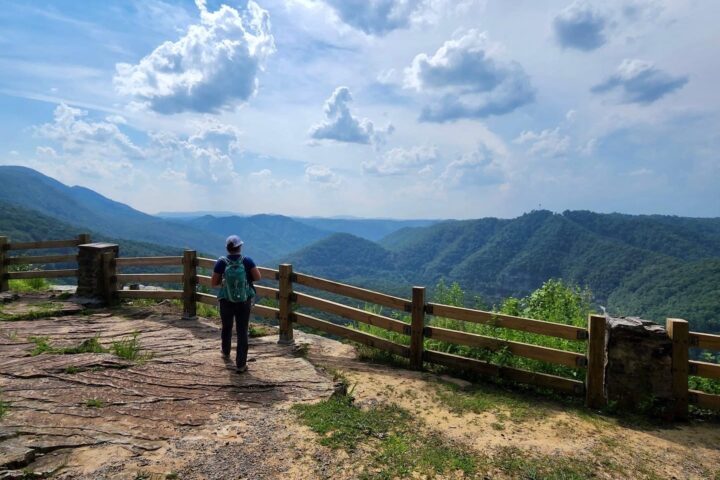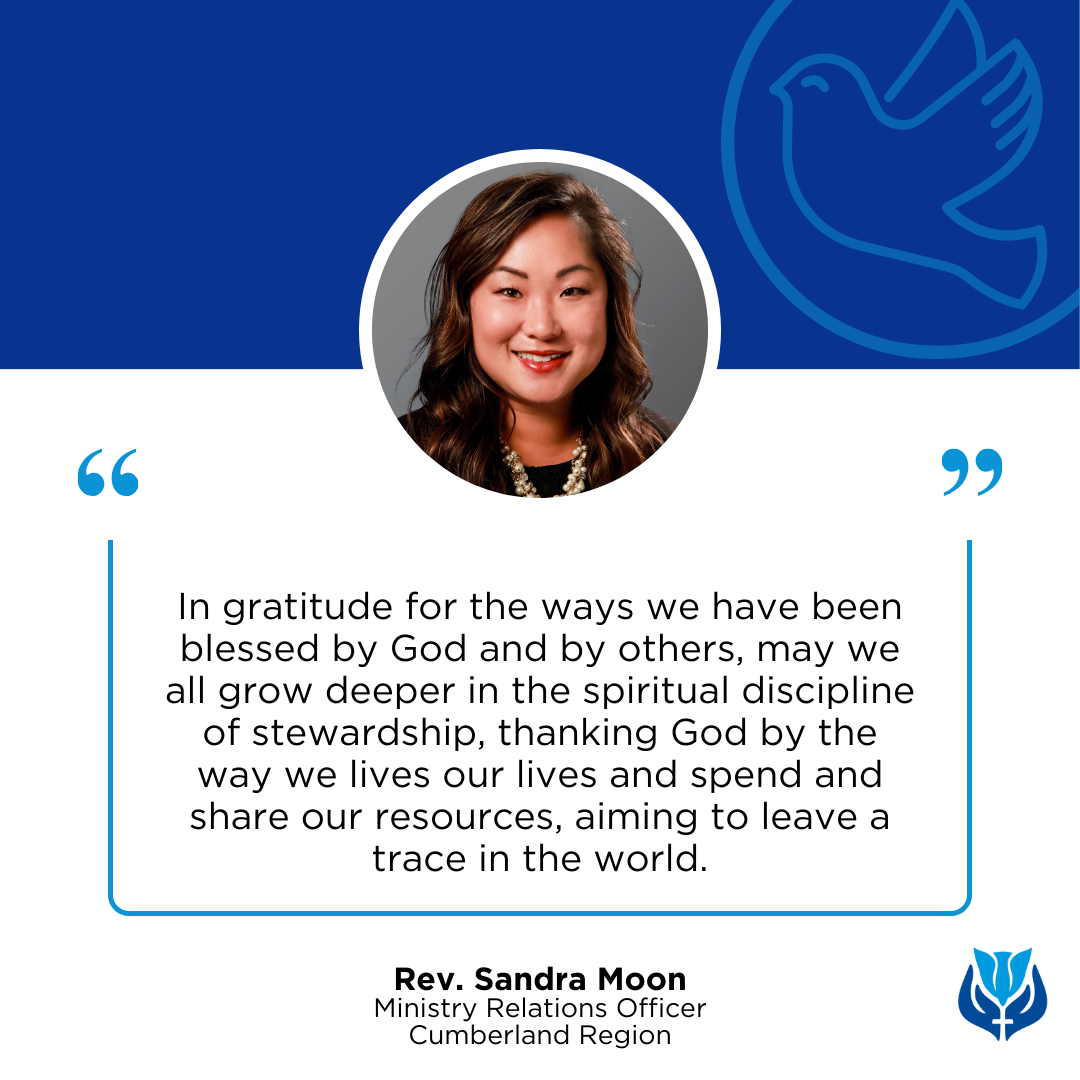5/17/2024
Stewardship Reflection: Leave A Trace
by Rev. Sandra Moon

I love the outdoors in any season, but in spring and early summer, with the wildflowers blooming and the mosquitos and other bugs not yet out in full force, I find myself out in the woods more than other times of the year. Whether I’m on a day hike, canoeing a river, or on a multi-day backpacking trip, I enjoy being largely unplugged from technology and taking time to soak in the natural beauty of God’s creation.
When visiting the outdoors, whether it’s a local park or a remote wilderness area, I’m conscious to minimize my impact on the land. To be a good steward of the outdoors, one should practice “Leave No Trace” principles. These are seven principles that provide a framework for how to enjoy shared outdoor spaces while being conscious of the effects that our actions may have on plants, animals, other people, and entire ecosystems. Perhaps the most well-known practice of a Leave No Trace principle is to “pack it in, pack it out”—don’t leave behind any litter, even food waste such as apple cores. By adhering to the Leave No Trace principles, we can play a vital role in protecting our natural areas so that they may be enjoyed by generations to come.
In my role as a Ministry Relations Officer at the Presbyterian Foundation, I talk about stewardship…a lot. We are called by God to be stewards of all that we have generously been gifted by God. The dictionary.com definition of stewardship is “the responsible overseeing and protection of something worth caring for.” Yes, and…

When I meet with ministers, sessions, congregations, and other ministry groups, I describe stewardship as the joyous spiritual discipline of thanking God with the way we live our lives and spend and share our resources.
It’s interesting to me that to be a good steward of the natural world when recreating outdoors, we should aim to leave no trace. We should enjoy nature in a way that makes it seem like we were never there. When it comes to being stewards of our personal time, talents, and treasures, we should aim for the opposite—we should aim to leave a trace. Our acts of generosity, no matter how great or small, should impact other individuals and our communities. Those impacts can happen immediately and they can live on even after we leave this earth through our legacies.
I am who I am today—we are all who we are today—because of the traces that others have left behind as they have faithfully stewarded their gifts for the glory of God and the work of the church in this world. I grew into faith as a child because of my Sunday School teachers who selflessly gave of their time to prepare lessons and to teach the Bible in ways that were accessible and fun. I stayed active in the PCUSA through my college campus ministry group, literally being fed by supporting congregations who took turns making homecooked meals for students to eat after worship on Tuesday evenings. After college I served as a PCUSA Young Adult Volunteer, an experience made possible by friends, family, and strangers who provided the financial support needed for my year of service. I went to seminary supported by a congregation that I had no ties to, who generously funded my tuition, student fees, and cost of books. These individuals and churches, because of their generosity, left traces on my life that have had lasting impacts. I will forever be grateful for the ways people have given of their time, talents, and treasures in ways that have nurtured my faith and sense of call.
In gratitude for the ways we have been blessed by God and by others, may we all grow deeper in the spiritual discipline of stewardship, thanking God by the way we lives our lives and spend and share our resources, aiming to leave a trace in the world.

